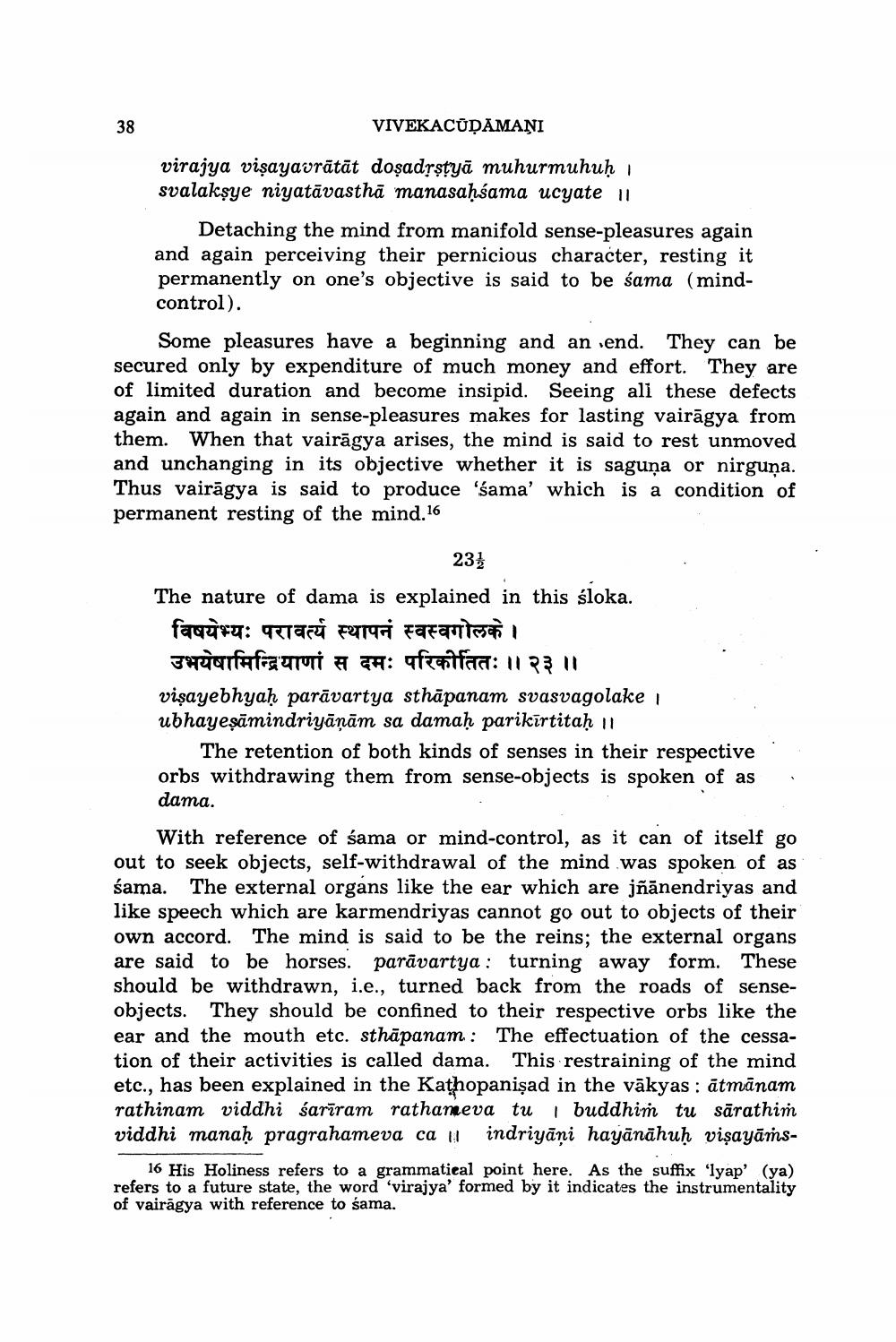________________
VIVEKACŪDAMAŅI
virajya vişayavrātāt dosadrstyā muhurmuhuḥ svalaksye niyatāvasthā manasaḥsama ucyate 11
Detaching the mind from manifold sense-pleasures again and again perceiving their pernicious character, resting it permanently on one's objective is said to be sama (mindcontrol).
Some pleasures have a beginning and an end. They can be secured only by expenditure of much money and effort. They are of limited duration and become insipid. Seeing all these defects again and again in sense-pleasures makes for lasting vairāgya from them. When that vairāgya arises, the mind is said to rest unmoved and unchanging in its objective whether it is saguņa or nirguņa. Thus vairāgya is said to produce 'sama' which is a condition of permanent resting of the mind. 16
233 The nature of dama is explained in this sloka. विषयेभ्यः परावर्त्य स्थापनं स्वस्वगोलके। उभयेषामिन्द्रियाणां स दमः परिकीर्तितः ॥ २३ ॥ vişayebhyah parāvartya sthapanam svasvagolake ubhayeşāmindriyāņām sa damaḥ parikīrtitaḥ 11
The retention of both kinds of senses in their respective orbs withdrawing them from sense-objects is spoken of as dama.
With reference of sama or mind-control, as it can of itself go out to seek objects, self-withdrawal of the mind was spoken of as śama. The external organs like the ear which are jñānendriyas and like speech which are karmendriyas cannot go out to objects of their own accord. The mind is said to be the reins; the external organs are said to be horses. parāvartya: turning away form. These should be withdrawn, i.e., turned back from the roads of senseobjects. They should be confined to their respective orbs like the ear and the mouth etc. sthāpanam : The effectuation of the cessation of their activities is called dama. This restraining of the mind etc., has been explained in the Kathopanişad in the vākyas : ātmānam rathinam viddhi sarīram rathaneva tu i buddhim tu sārathim viddhi manaḥ pragrahameva call indriyāṇi hayānāhuḥ viṣayāṁs
16 His Holiness refers to a grammatieal point here. As the suffix 'lyap' (ya) refers to a future state, the word 'virajya' formed by it indicates the instrumentality of vairāgya with reference to sama.




